Act 1
Violetta Valéry is one of the most beautiful and most adored ladies in the Parisian demi-monde, who gives lavish parties in her salon and celebrates life itself. The young Alfredo Germont is also present at one of these celebrations and is asked by the hostess to offer a toast. He sings the praises of love, but is unable to impress Violetta much at first. She finds her greatest happiness in sensory indulgence and other simple pleasures of life. When the company rise to dance, Violetta, who is suffering from consumption, has a fainting spell and is forced to stay behind. Alfredo remains with her and declares his love for her. He asks her when he can come back, and Violetta gives him her favorite flower, a camellia. She tells Alfred to come back when the flower has withered. When he has gone, Violetta is left alone with her conflicting feelings. On the one hand, she loves this life of pleasure and freedom, but at the same time longs for a close bond with a person and a life away from the superficial Parisian society.
Act 2
Violetta and Alfredo have become a couple and they are enjoying a happy time in the countryside near Paris. Alfredo learns from Annina, Violetta’s servant, that Violetta intends to sell valuables in order to further finance their happiness together at the country home. Alfredo decides to travel to Paris himself to find the necessary money. As soon as he is gone, a man appears in Violetta’s house whom she initially takes to be the buyer of her country home and who reveals himself to be Alfredo’s father, Giorgio Germont. Giorgio forcefully demands that Violetta end her love affair with his son. Alfredo’s sister’s groom threatens to break off their engagement if Alfredo doesn’t separate from her. Violetta decides to sacrifice her own happiness for someone else’s. When Alfredo returns, she evades him and secretly leaves for Paris, reappearing in society that evening at her friend Flora’s ball. She sends Alfredo a letter telling him that she has decided to break up with him. Alfredo is stunned. When he finds Flora’s invitation, he too, enraged with jealousy, sets out for Paris in order to confront Violetta. He meets her at the ball side by side with her former lover, Baron Douphal, whom she pretends to love dearly. Alfredo challenges the baron to a duel and, in front of the guests, throws a wad of money in Violetta’s face as payment for her »priceless services«. Violetta collapses. All protestations of her love for Alfredo and Alfredo’s rebuke by his father are in vain. After the duel with Douphal, Alfredo has to flee abroad.
Act 3
Violetta’s will to live is broken. Alone and dying, she lives in her Paris apartment. When Alfredo learns from his father the real reasons behind Violetta’s separation, he immediately hurries back to Paris to her sickbed. In despair, he asks her forgiveness. Overwhelmed by his love, Violetta recovers for a moment. But it is too late. As a farewell, she hands him a locket with her picture on it and dies in his arms. Alfredo remains with his father in remorse and despair.
Set in and around Paris in about 1850.
Act I
Violetta Valéry, a Parisian courtesan, greets the guests at her salon. Among them are Flora Bervoix, the Marchese D’Obigny, Baron Douphol and Gastone, who introduces Violetta to a new admirer of hers, Alfredo Germont. The young Germont, who has been admiring her from afar, joins her in a drinking song. An orchestra strikes up in an adjacent room, inviting the guests to dance. As the guests make their way to the ballroom, Violetta, who is suffering from consumption, feels faint; she therefore sends the guests on ahead and retires to her boudoir to recover. Alfredo enters and, realising that they are alone, admits his love for her. She replies that love means nothing to her. She
is, however, touched by the young man’s sincerity and promises to meet him the following day.
When the guests have departed, she asks herself whether Alfredo is the man she could love. Despite
the strains of Alfredo’s love song drifting in from outside, she decides she prefers her freedom.
Act II
scene 1
A few months later: Alfredo and Violetta have set up house together in the country, outside Paris. Alfredo says how happy they are, but when Violetta’s maid Annina lets on that Violetta has been selling her belongings to pay for the house, he hastens into town to raise the money himself. Violetta comes in search of him and discovers an invitation from her friend Flora to a soirée that very night. Violetta has no intention of returning to her former life, but she is forced to reconsider
on encountering Alfredo’s father. He is very taken with Violetta and her civilised manners but orders her to renounce Alfredo: his son’s scandalous liaison with Violetta is threatening his daughter’s forthcoming marriage. Violetta considers his demand unreasonable, but before long Germont succeeds in persuading her. Alone and desolate, Violetta sends a reply to Flora accepting her invitation and sits down to write a farewell letter to Alfredo. His return takes her by surprise, and she can barely restrain herself as she passionately reminds him how much she loves him before
rushing out. As the maid brings him Violetta’s farewell letter, Germont returns to console his son and reminds him of life in their family home in Provence. Alfredo spots Flora’s invitation and suspects that Violetta has left him for another man. In a rage, he decides to confront her at the soirée.
scene 2
At the soirée, Flora hears from the Marchese that Violetta and Alfredo have parted. Flora asks the guests to make way for a visiting troupe of performing gypsies. They are followed by matadors and a song about Piquillo and his sweetheart. Alfredo rushes in and delivers some bitter comments about love and gambling. Violetta appears on the arm of Baron Douphol, who challenges Alfredo to a game of cards and loses a small fortune to him. As the guests go in to supper, Violetta asks to have a word with Alfredo in private. She is afraid the Baron will be enraged by his loss and urges Alfredo to leave. Alfredo misunderstands her and orders her to admit she loves the Baron. Disappointed by Alfredo’s reaction, Violetta lies and confesses that yes, she does. Alfredo calls the other guests to gather round in order to denounce his former beloved in public and throws the money he has won at her feet. Germont, arriving at that very moment, expresses his disapproval of his son’s behaviour. The guests likewise rebuke Alfredo and Douphol challenges him to a duel.
Act III
Violetta’s bedroom, six months later. Dr Grenvil tells Annina that her mistress has not long to live –
the consumption has taken its toll. Alone, Violetta rereads a letter from Germont saying that the Baron was only slightly wounded in his duel with Alfredo, that Alfredo has heard the truth and is
coming to beg her pardon. But Violetta realises it is too late. It is carnival time in Paris and, the sounds of the revellers having passed, Annina rushes in to announce Alfredo. The lovers ecstatically plan to leave Paris. Germont enters with the doctor just as Violetta rises from her bed with the last of her strength. Feeling a sudden rush of life, she sways and falls dead at her lover’s feet.


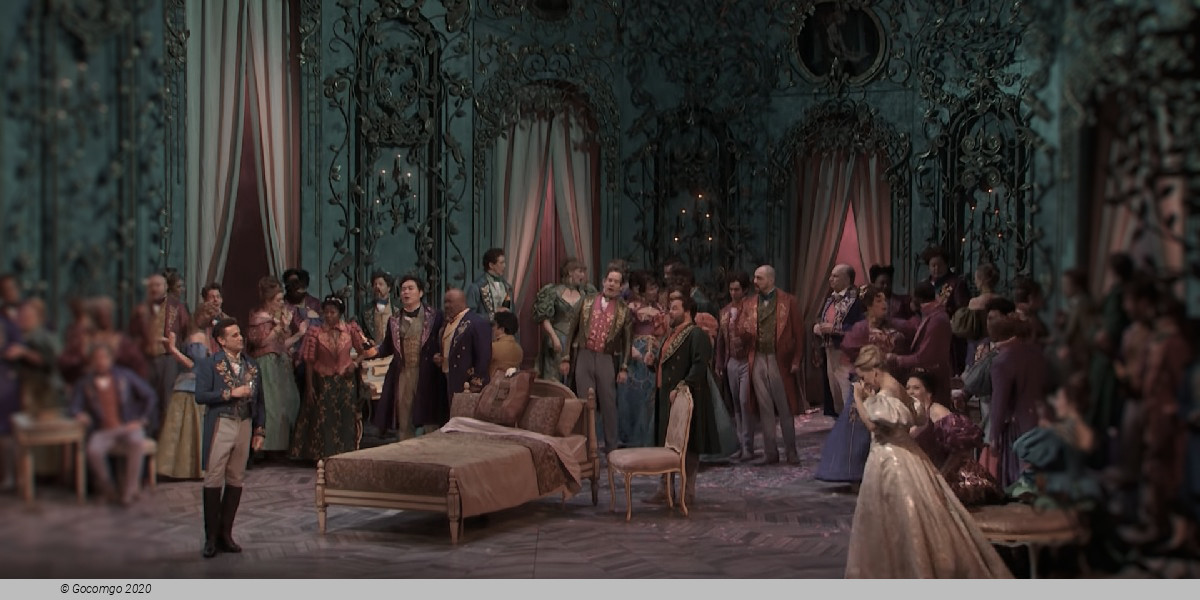
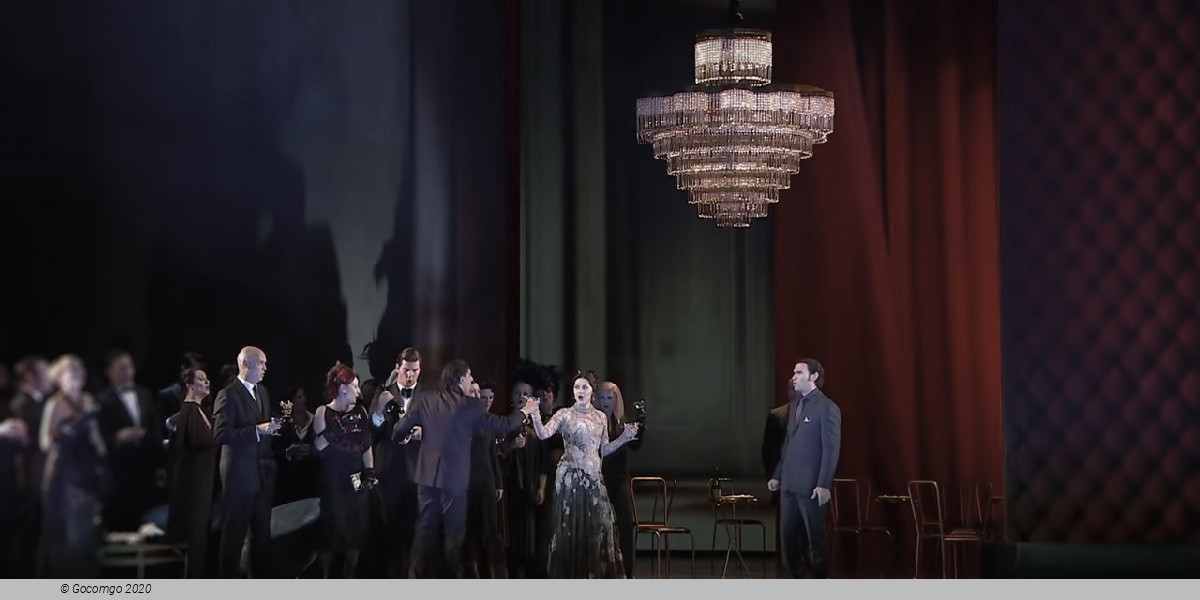
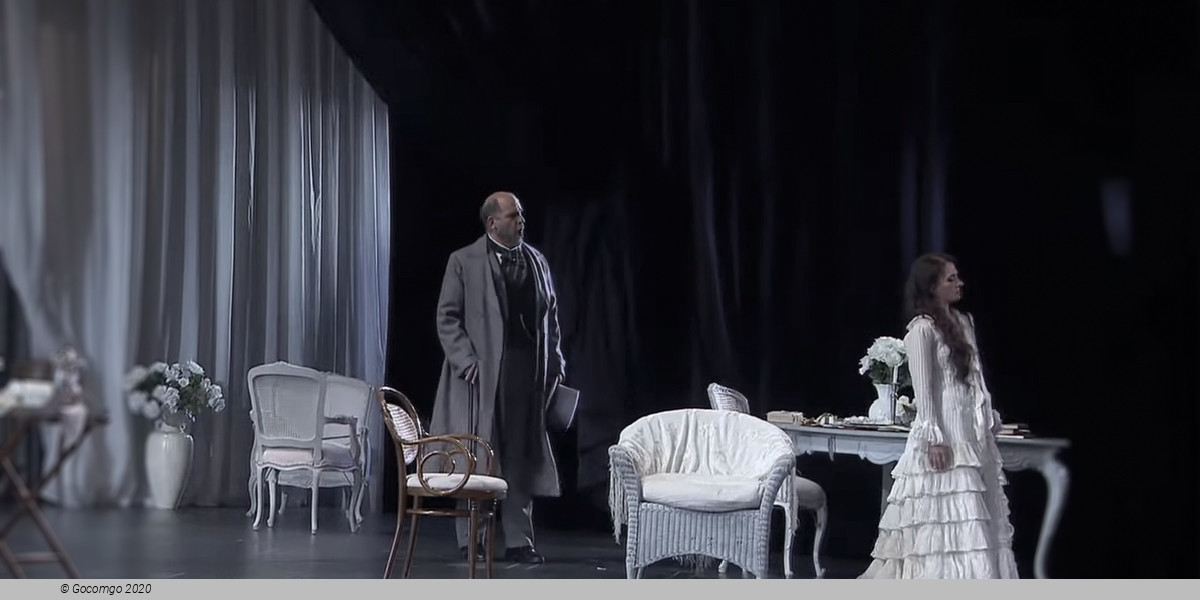
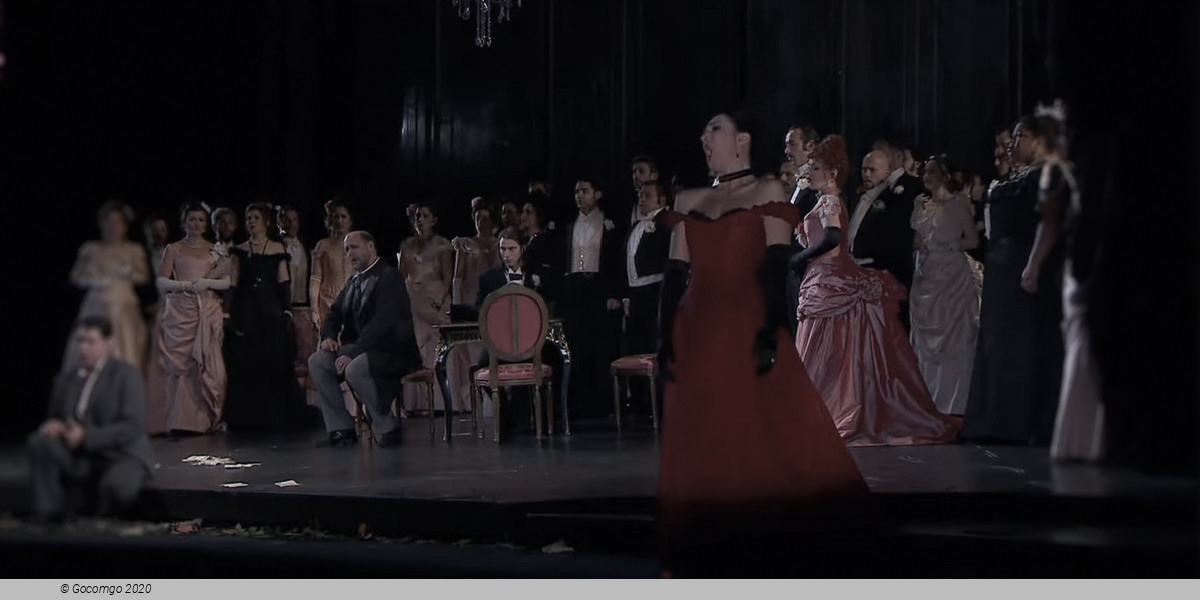
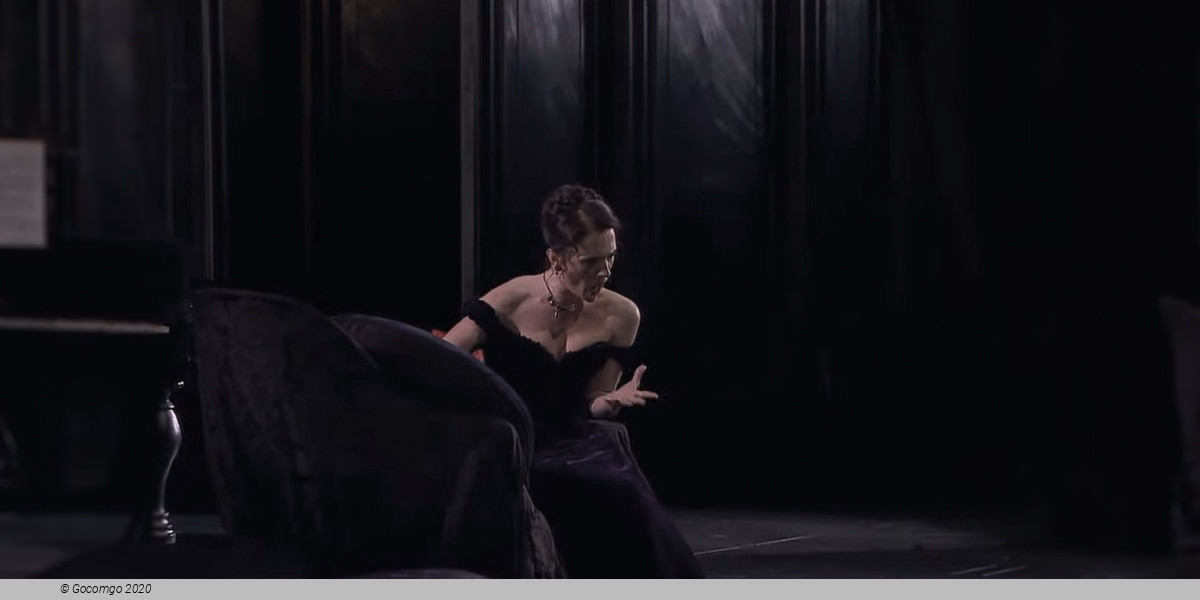
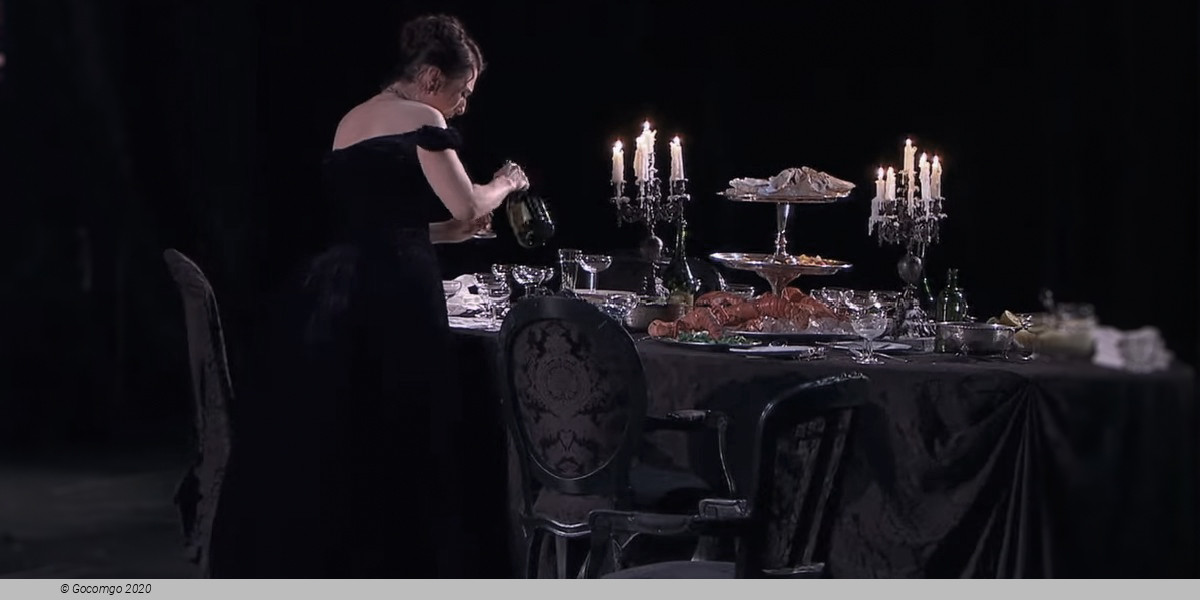
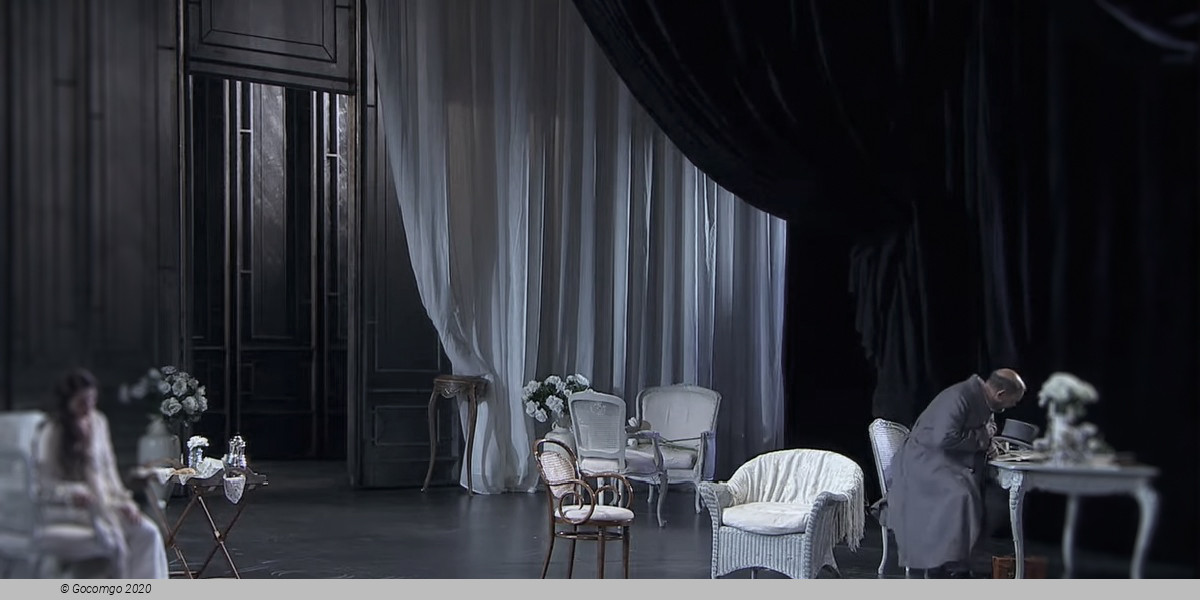
 Theaterplatz 2
Theaterplatz 2